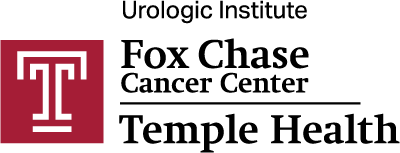

Offering Patients With Refractory Asthma Expanded Treatment Options
While many cases of asthma can be managed in a primary care setting, 5–10% of patients have asthma that cannot be controlled by standard treatments.
For these cases, the Temple Lung Center has a team of asthma specialists who can offer a range of advanced diagnostic tests and treatments that may help control their symptoms. These specialists collaborate frequently with colleagues in other disciplines, including ENT, gastroenterology, sleep medicine, speech pathology, and psychology.
Confirming A Diagnosis
All new patients at Temple are first reevaluated to ensure they have the proper diagnosis and whether any co-morbidities are impacting their asthma. In some cases, patients may not actually have asthma—upper airway issues like laryngeal spasms may mimic asthma attacks. A team treatment plan may help patients avoid costly treatments and improve their overall health by bringing in specialists from multiple fields to help improve asthma care.
Advanced Treatment Options For Severe Asthma
In recent years, treatment options for severe asthma have both improved and become more complex due to the advent of personalized medicine and enhanced understanding of the disease. Advanced treatment options for severe asthma offered at the Temple Lung Center include:
Biologics
Biologic therapies for asthma continue to evolve, especially for Type 2-high asthma, characterized by high airway and peripheral blood eosinophils, elevated IgE levels, sinus disease, and sometimes accompanied by allergies.
Until recently, patients with severe Type 2-high asthma only had one biologic therapy (Xolair®) available to them. Xolair® is an agent that targets IgE. However, there are now three drugs available that target the IL-5 pathway for reducing eosinophils (Cinqair®, Nucala®, and Fasenra®), and yet another that targets IL4/13 (Dupixent®). Choosing which drug to use for the right patient is vital to achieve maximal benefit.
There are yet other patients with Type 2-high asthma who do not respond to any FDA-approved biologic treatments. New research is exploring pathways a step or two above the IL-5 pathway, which may tackle multiple disease mechanisms and have potential for broader impact.
The Temple Lung Center has been on the forefront of the research and implementation of biologics in clinical care. Temple offers access to:
- Xolair® (omalizumab)
- Nucala® (mepolizumab)
- Fasenra® (benralizumab)
- Cinqair® (reslizumab)
- Dupixent® (dupilumab)
Leadership

The Temple Severe Asthma Program is led by Kartik Shenoy, MD, an experienced pulmonologist who was the first to perform bronchial thermoplasty in Philadelphia. Dr. Shenoy completed fellowships in both pulmonary/critical care and thoracic transplantation at Temple. He is also involved in several ongoing asthma-related clinical trials and has numerous publications to his credit.
“The Temple Severe Asthma Program was created to offer community providers with a resource for their complex and hard-to-manage asthma patients.”
- Dr. Shenoy
Bronchial Thermoplasty
Some patients with severe asthma may be eligible for bronchial thermoplasty, a procedure that uses radiofrequency energy to ablate smooth muscle in the airway wall, reducing asthma attacks and improving a patient’s quality of life. Temple was the first in the Philadelphia region to offer this outpatient procedure commercially.
Inclusion criteria for bronchial thermoplasty include:
Adult, uncontrolled asthmatics ( > 18 years old)
- Symptoms more than 2 days per week
- Nocturnal symptoms 1–3 nights per week
- Use of rescue inhaler more than 2 times per week
Patients whose asthma is not well-controlled despite taking a combination of inhaled corticosteroids (ICS) and long-acting beta agonist (LABA), such as Advair, Dulera or Symbicort
- (ICS > 1,000 µg/day beclomethasone or equivalent)
- LABA > 100 µg/day salmeterol or equivalent)
Absence of concomitant lung disease (COPD, Interstitial Lung Disease, Bronchiectasis, Cystic Fibrosis)
Clinical Trials
The Temple Lung Center has one of the most active clinical trials programs for lung disease in the nation. Temple researchers are involved in several major trials for asthma, including the Phase 3 SOURCE trial that is testing tezepelumab in patients who are steroid-dependent asthmatics.
Please call 800-TEMPLE-MED to discuss a case or arrange for a patient consultation. For inpatient transfers, please call 215-707-TRAN (8729).

